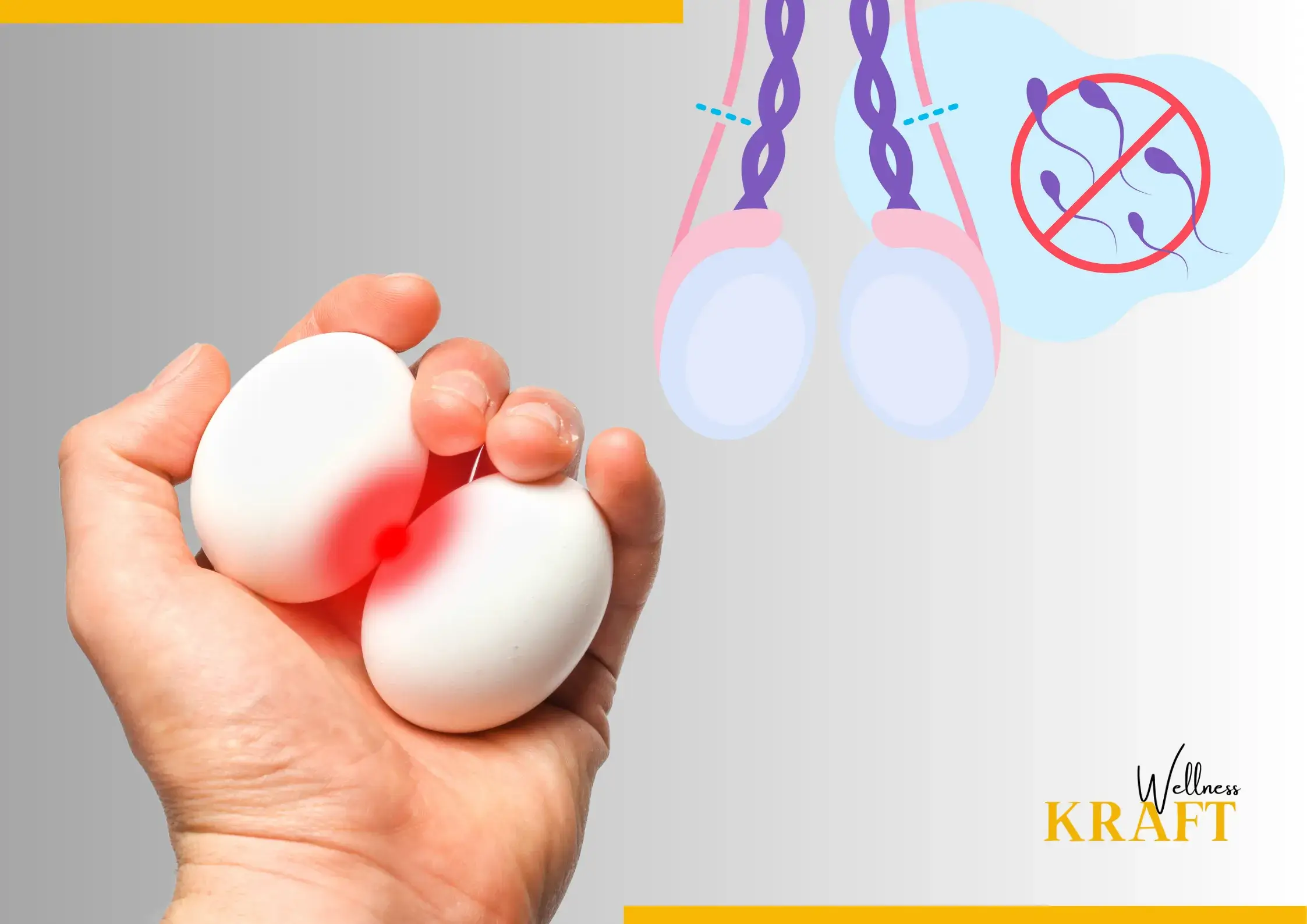“Ageing is wisdom, resilience, and gratitude, not time.” The depth of experiences and impact on others define longevity, not years lived. Age brings the beauty of a well-lived life, so embrace it in a healthy way.” – Wellness Kraft
Table of Contents
Introduction
Here, longevity and aging are thoroughly investigated. In this piece, we’ll look at the fascinating science behind aging, the things that affect longevity, and some useful strategies for living a longer, healthier life.
Aging is a natural part of life, but we can improve our health and well-being as we get older by learning how it works and taking action.
As we age, our bodies go through many changes that affect our physical, mental, and emotional health. Genetic, environmental, and lifestyle factors all play a role in the complex process of aging. We can make decisions that improve our longevity and general quality of life, even though we can’t turn back the clock.
Join us on this enlightening trip as we learn the secrets of longevity and aging. We will look at the most important factors that help us live full and happy lives well into our older years, from genetic predispositions to lifestyle changes.
Understanding How People Age

Aging is a complicated process in which the body’s ability to fix and rebuild itself slowly gets worse over time. It changes many of our physical and mental processes, including how we look, how much energy we have, and how healthy we are overall.
Understanding the mechanisms that contribute to aging, which are affected by both genetic and environmental factors, can offer important lessons for extending longevity.
Genes and living a long life
The rate of aging and the likelihood of longevity is greatly influenced by genetics. Our genes can affect how our bodies react to outside stresses like oxidative damage and inflammation, both of which speed up the aging process.
Some DNA differences may protect against age-related diseases, while others may make people more likely to get them.
Specific genes linked to longevity have been found, according to researchers. One of these genes is FOXO3A, which has been linked to exceptional longevity in some people. This gene’s variations have been found to promote longevity and stress resistance in cells.
It’s important to remember that longevity and aging are not solely determined by genetics. Choices about how to live and things in the surroundings also have a big impact on the aging process. Even people with a gene for longevity can improve their chances by leading a healthy lifestyle.
We can make educated choices about our health and use focused strategies to promote longevity by knowing our genetic makeup. Genetic tests and counseling can tell us a lot about how likely we are to get age-related diseases and help us come up with our own ways to stay healthy.
1.How To Live a Healthy Life as You Get Older
For good health and longevity as we age, adopting a healthy lifestyle is crucial. Even though genes may have something to do with aging, the choices and habits we make every day have a big impact on our general health and the quality of our later years.
Let’s look at some important lifestyle choices that can help us age well and live fulfilling lives.
1. How food affects how long people live?

Proper nutrition is a key part of healthy aging. A diet that is well-balanced and full of important nutrients can give our bodies the fuel they need to work well and stay healthy as we age. It’s important to eat a range of foods that are high in nutrients, such as fruits, vegetables, whole grains, lean proteins, and healthy fats.
Antioxidants are found in large amounts in brightly colored fruits and vegetables. They help protect cells from damage caused by molecules called free radicals. These antioxidants can support general health and may increase longevity. Omega-3 fatty acids, which are found in fatty fish like salmon and walnuts, have also been linked to a lower chance of age-related cognitive decline and some long-term diseases.
Getting enough water is also important for healthy aging. The body’s ability to digest food, circulate blood, and maintain body warmth are all supported by staying hydrated. Aim to drink a lot of water and not too many sugary drinks throughout the day.
It’s important to focus on eating foods that are high in nutrients, but it’s also important to eat in balance and with awareness. Portion control can help you stay at a healthy weight and avoid obesity, which is linked to many health problems that come with getting older.
In addition to eating a healthy diet, you can also take dietary supplements to make sure you get enough of certain nutrients. But it’s important to talk to a healthcare professional before starting any supplementation plan because different people have different needs.
We can feed our bodies and support healthy aging by placing a high priority on good nutrition and choosing the foods we eat with care.
2.Physical activity and exercise can help you live longer

Regular exercise and physical activity are important parts of a healthy lifestyle, promoting longevity and improving general health as we age. For our physical, mental, and emotional health, engaging in physical exercise has many benefits.
How Exercise Can Help You Live Longer?
It has been shown that exercise lowers the chance of long-term diseases like heart disease, diabetes, and some types of cancer. It helps you keep a healthy weight, improves your heart health, and increases your muscle strength and flexibility.
The chance of osteoporosis and fractures is reduced by regular exercise, which also helps support bone health.
In addition, maintaining cognitive function and mental well-being is important thanks to physical activity. Studies have shown that exercise can improve memory, attention, and executive functions.
This lowers the chance of age-related cognitive decline and neurodegenerative diseases like Alzheimer’s. Endorphins, which are often called “feel-good” hormones, are released during exercise and can help relieve the symptoms of depression and anxiety as well as boost general mental health.
To exercise every day, try to do a mix of aerobic activities like brisk walks, cycling, or swimming and strength training routines to keep your muscle mass and bone density up. Engaging in activities that promote balance, like yoga or tai chi, can help avoid falls and improve stability.
Remember to start slowly and pay attention to how your body feels. Before starting a new exercise program, you should talk to a professional healthcare provider, especially if you have any health issues.
2.Mental Health and Brain Function as People Age

Aspects of healthy aging include mental health and cognitive performance. Strategies that promote mental well-being and maintain cognitive skills should be prioritized as we get older.
For mental and emotional health, it’s important to stay socially engaged and keep meaningful connections with family, friends, and the community. Engaging in social activities, pursuing hobbies, and volunteering can give you a sense of purpose, make you feel less lonely, and make you happier with your life generally.
To keep your mind sharp, cognitive exercise is just as important. It can help to maintain cognitive function and possibly lower the risk of cognitive decline to challenge your brain with activities like puzzles, reading, learning new skills, or participating in mentally stimulating games.
Getting enough quality sleep is also important for brain health. Sleep is very important for making memories stick and repairing brain function. Set up a regular sleep schedule, make your sleeping space comfortable, and follow good sleep habits to get restful, uninterrupted sleep.
Sleep and the Benefits of Restoring
A key component of good health and a key factor in boosting longevity is getting enough quality sleep. When we get enough restful sleep, our bodies and brains can recharge, fix, and feel fresh again. The significance of sleep will be discussed in this part, along with strategies for enhancing sleep quality.
How Sleep Can Help You Live Longer?
During sleep, our bodies do important things that support our health and well-being as a whole. Sleep helps fix cells, balance hormones, keep the immune system working well, and solidify memories. Maintaining good cognitive function, emotional well-being, and physical vitality are all dependent on it.
Getting enough sleep every night is linked to a lower risk of long-term health problems like heart disease, diabetes, and obesity. Additionally, it supports mental health by assisting with mood regulation, stress reduction, and overall cognitive function.
Set up a regular sleep routine by going to bed and getting up at the same times every day to promote restful sleep. Make a cool, dark, and quiet place to sleep that is comfortable. Don’t do anything stimulating or use electronics right before bed because they can mess up your normal sleep-wake cycle.
Relaxation techniques, like deep breathing exercises, meditation, or gentle stretching, can help calm the mind and get the body ready for sleep. Also, doing things before bed that promote rest, like reading a book or taking a warm bath, can tell your body it’s time to wind down and get ready for sleep.
If you have trouble sleeping for a long time, such as with sleeplessness or sleep apnea, you should see a doctor. To address underlying sleep disorders, a healthcare professional can offer guidance and suggest effective interventions.
3.Managing Long-Term Conditions to Live Longer

Managing chronic conditions is important for maximizing longevity and maintaining a good quality of life. Heart disease, diabetes, arthritis, and breathing problems are common long-term illnesses that affect people as they age.
Proactive management can greatly improve outcomes and increase longevity, even though these conditions may present difficulties.
An individual management plan must be created in close collaboration with professional healthcare providers. This usually entails a combination of medication management, lifestyle changes, and routine health parameter monitoring.
A healthy diet, regular exercise, stress management, and adequate sleep are all important lifestyle choices for managing chronic conditions and supporting overall health and well-being.
To manage chronic conditions well, it is important to take prescribed medications and follow recommended treatment plans. It’s important to get regular medical check-ups, pay attention to any changes in your symptoms, and talk to your healthcare provider right away if you have any worries or questions.
In some cases, joining support groups or going to counseling can give people with chronic conditions important emotional and psychological support. Sharing experiences, learning from others, and getting access to more resources can help people deal with the problems that come with living with a chronic condition.
People can take control of their health and increase their chances of longevity by actively managing chronic conditions and collaborating with healthcare experts. In the next part, we’ll talk about how social connections and emotional well-being are important for healthy aging.
Social connections and emotional well-being go hand in hand.
Social and emotional well-being are important aspects of health. Maintaining meaningful relationships, participating in social activities, and caring for our emotional well-being can have a big effect on our general health and longevity.
4.Why It’s Important to Have Friends?

There are many physical and mental health benefits linked to having strong social connections. A feeling of belonging, support, and purpose can be provided by engaging in social activities and maintaining close relationships with family, friends, and the community.
Low rates of depression, anxiety, and mental decline have been linked to having more social connections.
To build social connections, it’s important to spend quality time with people you care about and take part in social events. Joining clubs, helping out, going to community events, and keeping in touch through phone calls or video chats are all ways to maintain and improve social ties.
5.Healthy Aging and Emotional Well-Being

In order to maintain health and a high standard of living, emotional well-being is essential. As we get older, it’s important to put self-care, stress management, and emotional strength at the top of our lists.
Mindfulness and stress reduction techniques, like meditation, deep breathing exercises, or engaging in hobbies that bring joy and relaxation, can help manage stress levels and improve emotional well-being.
A safe place to express emotions, seek guidance, and gain perspective can be found by asking trusted friends, family members, or professionals for support.
Keeping a positive attitude and learning to be grateful can also help with emotional well-being. Focusing on the positive aspects of life and expressing gratitude for the little things we have in life can help us change our minds and feel happier.
Research Analysis
Numerous anti-aging interventions that have the potential to lengthen health spans and promote longevity have been the subject of recent advances in scientific study.
Emerging research offers promising insights into interventions that can slow down age-related decline and improve general well-being, even though the idea of completely reversing aging is still far-fetched.
Senescence and the aging of cells are interesting studies. Researchers are looking into interventions that target senescent cells, which are linked to inflammation and tissue dysfunction.
These interventions try to get rid of or revive senescent cells, which could slow down the aging process and lower the risk of diseases that come with getting older.
The role of genetic and epigenetic factors in aging is also a subject of study. With the aim of identifying possible interventions that can modulate these factors to promote health, scientists are looking into genetic variations and epigenetic modifications that affect the aging process.
Also, animal research and some human trials of lifestyle interventions like caloric restriction, intermittent fasting, and specific dietary approaches (like the Mediterranean diet) have shown promising results, suggesting possible anti-aging effects.
Even though these interventions seem to have potential, more study is needed to fully understand their safety, effectiveness, and long-term effects on people.
Concluding Thoughts
In conclusion, aging is a complicated process that is affected by both genes and the environment. It’s important to remember that lifestyle choices and proactive health measures have a big impact on the aging process, even though genetics may play a role in determining our possible longevity. In this article, Wellness Kraft has talked about different aspects of longevity and health.
We started by talking about what we know about aging and how genes affect longevity. While our genes play a part, lifestyle decisions and environmental factors also have an anti-aging effect.
Then, we talked about how important nutrition is and how important it is to eat a well-balanced diet full of important nutrients, vitamins, and omega-3 fatty acids. People also said that drinking enough water and eating with awareness was important for healthy aging.
It was emphasized how important regular physical activity and exercise are for supporting longevity. Cardiovascular fitness, muscle strength, and mental function can all be improved by engaging in aerobic exercise, strength training, and balance routines. We also talked about the benefits of exercise for mental health, lowering stress, and general well-being.
As it supports cellular repair, hormone regulation, and cognitive function, sleep has emerged as a crucial aspect of healthy aging. We talked about ways to improve the quality of sleep, such as making a regular sleep routine, creating a sleep-friendly environment, and practicing relaxation techniques.
Optimizing longevity requires treating chronic illnesses like heart disease and diabetes in an aging population. A proactive method that includes lifestyle changes, medication management, and routine monitoring can make a big difference in how things turn out.
People said that social connections and emotional well-being are important for healthy aging. Maintaining meaningful relationships, taking part in social activities, and putting self-care first all add to overall well-being and lower the risk of depression and cognitive decline.
The topic of new studies and anti-aging interventions was covered last. Scientists are looking into interventions that target cell aging and genetic and epigenetic factors, as well as lifestyle interventions like calorie restriction and special dietary approaches.
Knowing about new research and interventions is important, but more research is needed to fully understand how well and safely they work.
Key Takeaways
1. Aging is affected by genetic and environmental factors, with lifestyle choices playing a big part in aging.
2. Nutrition is a key part of healthy aging, which is why it’s important to eat a well-balanced diet and drink enough water.
3. By improving cardiovascular fitness, muscle strength, and cognitive function, regular exercise and physical action promote longevity.
4. To support cellular repair, hormone regulation, and cognitive function, quality sleep is crucial for general health and well-being.
5. By incorporating lifestyle changes, medication management, and regular monitoring, managing chronic conditions is essential for maximising longevity.
6. Social connections and emotional well-being are important aspects of healthy aging because they improve mental health and lower the risk of depression and cognitive decline.
7. In order to promote healthy aging, a new study is looking into interventions that target cellular health, genetic and epigenetic factors, and lifestyle approaches.
8. Nutrition, exercise, sleep, chronic condition management, and social engagement are all preventative health steps that can slow down the aging process.
9. Stay up-to-date on new research and interventions in the field of aging, but know that more research is needed to prove their safety and usefulness.
10. Promoting longevity requires a holistic approach to aging that considers physical, mental, and emotional well-being.
FAQs
1. How does genetics affect the aging process?
Our longevity potential and the rate at which we age are both influenced by genetics. Some genes can affect how our bodies age, changing things like how cells are repaired and maintained. But it’s important to remember that lifestyle choices and the environment also have a big effect on aging.
2. How does nutrition contribute to healthy aging?
Nutrition is a very important part of healthy aging. A healthy diet with a range of fruits, vegetables, whole grains, lean proteins, and healthy fats supports general health and well-being. Getting enough water is also important for keeping your body working well. Nutrition can help prevent chronic diseases and promote longevity.
3. Which types of exercise are good for increasing longevity?
The key to promoting longevity is aging through daily exercise. It is best to do a mix of aerobic exercises, like brisk walking or swimming, strength training to maintain muscle bulk, and balance exercises to keep from falling. Physical exercise improves cardiovascular fitness, muscle strength, bone density, and cognitive function, all of which contribute to general well-being and longevity.
4. How does the way you sleep affect the aging process?
Getting enough good sleep is important for healthy aging. The body goes through processes while sleeping that promotes memory consolidation, hormone regulation, immune function, and cell repair. Chronic lack of sleep or bad quality sleep can make you more likely to get chronic diseases, lose your memory, and have your health get worse overall. For optimal aging, it is crucial to prioritize good sleep hygiene and implement practices that promote sound sleep.
5. How can chronic conditions be handled to increase longevity?
Managing long-term problems requires a lot of different steps. The prevention of chronic diseases and the promotion of longevity depend on lifestyle changes like a healthy diet, regular exercise, stress management, and drug adherence. For effective management, it’s also important to keep an eye on health parameters on a regular basis, go to medical check-ups, and talk to healthcare workers ahead of time.
6. What are the benefits of social connections and emotional well-being for healthy aging?
Social connections and emotional well-being have a big effect on healthy aging. Maintaining meaningful relationships, taking part in social activities, and getting emotional support all contribute to overall well-being and lower the risk of depression and cognitive decline. Social connections give people a feeling of belonging, support, and a reason to live, which is good for their mental health and quality of life as a whole.
7. What are some new anti-aging interventions, and what benefits might they have?
The potential to slow down age-related decline and promote longevity is being explored by new research into different anti-aging interventions. These interventions include focusing on aging cells, genetic and epigenetic factors, and lifestyle changes like limiting calories and eating in certain ways. Even though these interventions show promise, more study is needed to learn more about how well they work, if they are safe, and what their long-term effects are.
8. What lifestyle decisions can people make to support their aging health?
Several lifestyle options can support aging health. These include eating a well-balanced diet, engaging in regular physical exercise, getting enough sleep, managing stress, abstaining from tobacco and excessive alcohol use, and keeping social connections. Self-care, mental health, and proactive management of chronic conditions all contribute to healthy aging.
9. How can people keep up with the latest studies on longevity and aging?
There are many ways to keep up with the most recent studies on aging and longevity. Following reputable scientific journals, going to conferences or seminars, talking to healthcare experts, and getting information from reliable online sources can all be helpful. To make smart choices about your health and well-being, it’s important to evaluate sources carefully and rely on information that’s backed up by evidence.
10. Why is it important to look at aging and well-being in a holistic way?
Considering the physical, mental, and emotional aspects of well-being is part of a holistic approach to aging. It acknowledges that longevity and health are affected by a variety of factors. People can improve their general health, well-being, and quality of life as they age by taking care of their nutrition, exercise, sleep, emotional health, social connections, and management of chronic conditions.










